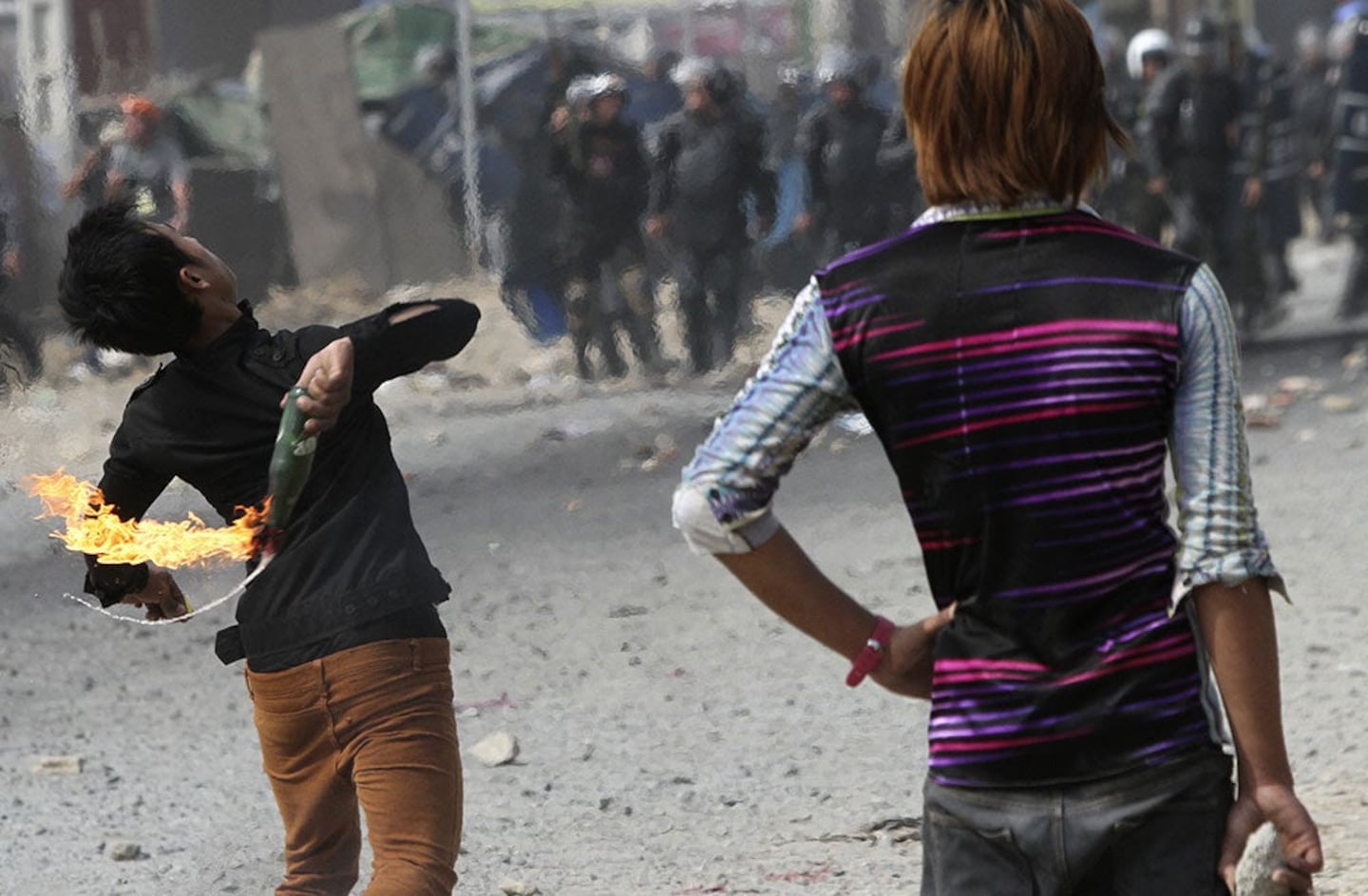
The Business of Fashion
Agenda-setting intelligence, analysis and advice for the global fashion community.

Agenda-setting intelligence, analysis and advice for the global fashion community.

PHNOM PENH, Cambodia — Cambodian military police opened fire with assault rifles on Friday to quell a protest by garment factory workers demanding higher pay, and human rights workers said at least four people were killed.
Chaos during nationwide strikes erupted for a second day as security forces were deployed to halt a demonstration by thousands of workers who refused to move and threw bottles, stones and petrol bombs at an industrial zone in Phnom Penh.
The clash represents an escalation of a political crisis in Cambodia, where striking workers and anti-government protesters have come together in a loose movement led by the opposition Cambodia National Rescue Party (CNRP).
Unions representing garment workers have joined opposition supporters protesting against the government of Prime Minister Hun Sen to demand a re-run of an election in July that the opposition has said was rigged.
ADVERTISEMENT
Military police confronting the protesters fired live ammunition, Reuters journalists said, and bullet casings were later seen scattered on the ground at the scene.
The clashes took place at Canadia Industrial Park in Phnom Penh, home to dozens of factories that make clothing for western brands including Adidas, Puma and H&M Hennes & Mauritz.
Human rights group LICADHO described the incident as "horrific" and said its own investigation and surveys of hospitals had found four people were killed and 21 were wounded.
"We condemn this appalling use of extreme lethal force by security forces", the group's director, Naly Pilorge, said in a statement. "Security forces must now put an immediate end to the use of live ammunition against civilians."
Spokesmen for the national police and military police said they could not verify the number of casualties.
The violence followed a crackdown on Thursday outside a Yakjin (Cambodia) Inc factory in another part of the city, when armed troops struck demonstrators with batons, wounding 20 people. Yakjin is a maker of clothing for U.S. companies Gap and Walmart.
Many Western brands outsource manufacturing of footwear and apparel to Cambodia, partly because labor there is cheaper than in China.
The CNRP, led by former finance minister Sam Rainsy, has courted some 350,000 garment workers from nearly 500 factories across the country by promising to nearly double the monthly minimum wage to $160 if it wins a re-run of the July election, which Hun Sen is refusing to hold.
ADVERTISEMENT
Crisis Over Wages
The opposition claims that 2.3 million of its votes were stolen to allow the ruling Cambodia People's Party (CPP) to return to office. The CPP won 68 seats in the election to the CNRP's 55, according to the National Election Committee, but the CNRP has said the commission is one of many agencies under the influence of the CPP.
The government is refusing to raise the wage beyond $100 dollars a month and has ordered factories to reopen. The garment industry is worth $5 billion a year to Cambodia, one of the world's poorest countries.
Cheath Khemera, a senior labor officer at the Garment Manufacturers Association in Cambodia (GMAC), told Reuters it was too soon to assess the cost of the strikes, but he estimated each factory could be losing $20,000 to $30,000 a day.
"This really impacts the industry seriously," he said.
The United States said it deeply regretted the loss of life in the clashes and urged all sides to exercise restraint and show respect for the rule of law.
"We condemn violence as a means to achieve political or other objectives," State Department Spokeswoman Marie Harf said at a regular briefing.
"We have urged workers, unions and the government to work together towards a peaceful resolution of labor disagreements," she said, adding that the United States was also engaging garment exporters and buyers on the issue.
ADVERTISEMENT
"We are urging respect for workers rights and safe working conditions in general," she said.
Until this week, security forces had exercised restraint as pressure mounted on a government facing some of the biggest protests ever seen in Cambodia.
The strikes and protests represent a rare challenge to the 28-year rule of Hun Sen, who has been credited with attracting investment and creating jobs in the once failed state scarred by war and the bloody 1970s Khmer Rouge era.
He has also earned a reputation for being intolerant of opposition and rights groups have said abuses are common.
Hun Sen's rule was tested last year when various opposition parties amalgamated and won votes from Cambodians upset by low wages, graft and a substantial number of forced evictions from farmland and city slums.
Garment manufacturing is Cambodia's biggest foreign currency earner. It is also a major employer and vital source of income for many rural families who complain they can barely survive on the wages, which are lower than in neighboring Thailand and Vietnam.
By Martin Petty, Pring Samrang, David Brunnstrom; Editors: Robert Birsel, Toni Reinhold
Copyright (2014) Thomson Reuters. Click for restrictions
From analysis of the global fashion and beauty industries to career and personal advice, BoF’s founder and CEO, Imran Amed, will be answering your questions on Sunday, February 18, 2024 during London Fashion Week.
The State of Fashion 2024 breaks down the 10 themes that will define the industry in the year ahead.
Imran Amed reviews the most important fashion stories of the year and shares his predictions on what this means for the industry in 2024.
After three days of inspiring talks, guests closed out BoF’s gathering for big thinkers with a black tie gala followed by an intimate performance from Rita Ora — guest starring Billy Porter.